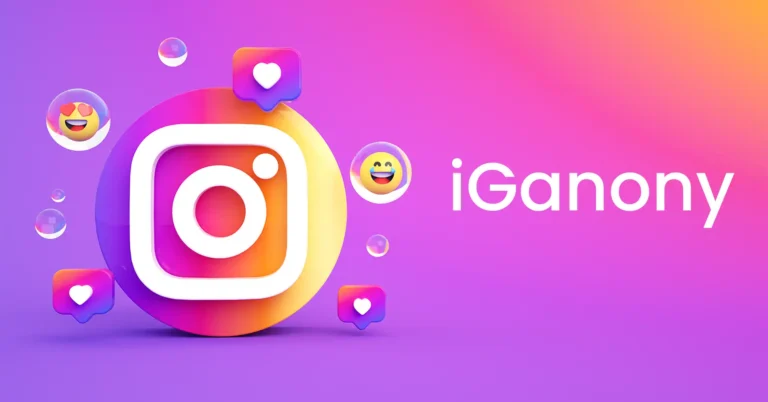Social Media: Bad Influences on the New Upcoming Generation

In today’s rapidly evolving digital landscape, social media has become a dominant force, shaping the behaviors, attitudes, and aspirations of the new generation. While platforms like Instagram, TikTok, and baddiesonlytv offer opportunities for creativity and connection, the darker side of social media often goes unnoticed. From unhealthy comparisons to exposure to harmful trends, the effects on young minds can be profound. In this article, we’ll explore how social media negatively influences our upcoming generation, share personal insights, and provide practical steps to combat these challenges.
The Hidden Dangers of Social Media
Unrealistic Beauty Standards
One of the most significant impacts of social media is the promotion of unrealistic beauty standards. Scrolling through curated feeds filled with edited images can create feelings of inadequacy, especially among young users. From personal experience, we’ve noticed how even casual users begin to compare themselves to influencers, often forgetting that most of these images are heavily filtered.
Young people, particularly teenagers, can start chasing these unattainable ideals, which may lead to body image issues, low self-esteem, and even eating disorders. To counter this, open conversations about the reality behind these posts are crucial.
Mental Health Struggles Linked to Overuse
We’ve all been there—endlessly scrolling late at night, losing track of time. Studies show that excessive social media use can lead to anxiety, depression, and loneliness. For the younger generation, who may not yet have the tools to manage their mental health, this constant exposure can be overwhelming.
For instance, notifications and likes create a loop of validation, where individuals feel pressured to stay relevant. Breaking free from this cycle involves setting limits, prioritizing offline activities, and practicing mindfulness.
Peer Pressure and Dangerous Trends
Social media also amplifies peer pressure and introduces harmful trends. Challenges like the Tide Pod Challenge or the dangerous stunts popularized on TikTok can have serious consequences.
Through our own interactions with younger relatives, we’ve observed how easily children imitate trends without understanding the risks. Parents and guardians need to remain vigilant and discuss the real-life dangers of blindly following such challenges.
Academic Distractions and Decreased Productivity
Social media isn’t just a time-waster; it’s a productivity killer. Many students spend more time on social media than focusing on their studies, leading to poor academic performance. From personal experience, we’ve seen how constant notifications and the allure of quick entertainment pull attention away from meaningful tasks.
Encouraging young people to create dedicated screen-free study zones can help. Apps that block social media during study hours are also effective tools for maintaining focus.
Cyberbullying and Online Harassment

One of the most alarming issues with social media is the rise in cyberbullying and online harassment. Unlike face-to-face bullying, online attacks can feel relentless, as they invade the victim’s safe spaces.
Through our work on digital safety projects, we’ve seen how this affects confidence and even leads to long-term trauma in young individuals. Teaching cyber etiquette and encouraging open communication at home are essential steps to address this issue.
Loss of Real-World Connections
Ironically, while social media connects us to people worldwide, it often disconnects us from those closest to us. We’ve observed how young individuals tend to prioritize their online lives over in-person interactions, leading to a decline in social skills.
Promoting family time, hobbies, and outdoor activities can bring balance and help the new generation develop healthier relationships.
Steps to Minimize Negative Influences
Promote Healthy Usage
- Set screen time limits.
- Encourage following positive accounts that inspire growth.
Education on Digital Literacy
Teach kids to recognize fake news, misleading ads, and the reality of online content.
Lead by Example
As adults, we must practice what we preach. Limiting our own social media use can inspire younger ones to follow suit.
FAQs
What are the major negative effects of social media?
Social media can lead to mental health struggles, cyberbullying, and a decline in academic performance due to distractions and overuse.
How does social media affect self-esteem?
It often promotes unrealistic beauty standards, leading to body image issues and low self-worth, especially in teens.
Can social media addiction be prevented?
Yes, by setting screen time limits, encouraging offline activities, and discussing its pitfalls openly, addiction can be minimized.
What role do parents play in reducing social media’s impact?
Parents can educate their children about digital literacy, monitor their usage, and encourage open communication about online experiences.
Are there benefits to social media for the new generation?
Yes, when used responsibly, social media platforms like Baddiesonly can foster creativity, networking, and learning opportunities.
Conclusion
The influence of social media on the upcoming generation is undeniable. While it offers many benefits, its negative effects—from mental health challenges to dangerous trends—cannot be ignored. By fostering open communication, setting healthy boundaries, and leading by example, we can help young individuals navigate the digital world responsibly.
If you found this article insightful, explore our website for more tips on promoting healthy digital habits. Let’s work together to build a better future for the next generation!





